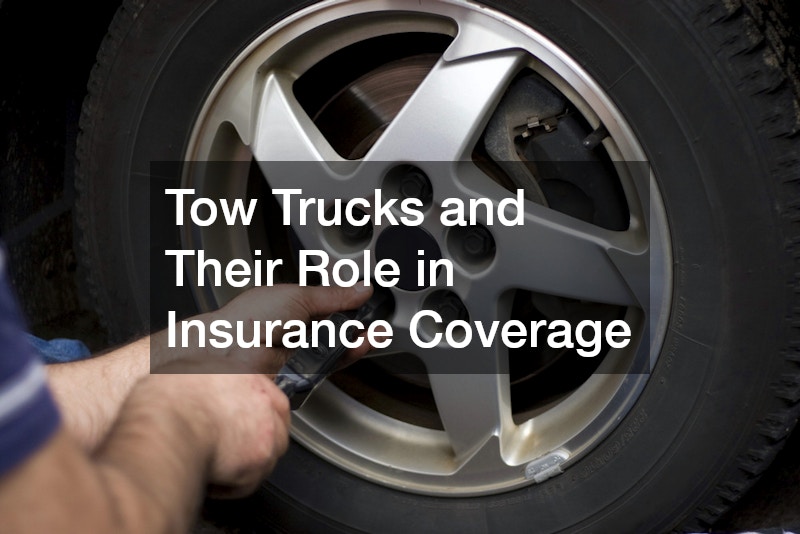
When you’re involved in an accident or your vehicle sustains damage, one of the first questions you may ask is whether your insurance will cover the body shop payments. The repair process can be costly, especially if it involves a variety of services ranging from auto repairs to specialty services like car ceramic coating or truck hydraulic services. While your car insurance policy may cover the body shop payments for some repairs, it’s essential to understand the specifics of your policy and the types of services that are typically covered. Here’s a detailed breakdown of how auto insurance interacts with body shop payments and the various services involved.
Understanding Auto Insurance Coverage
Auto insurance is designed to protect you financially in the event of an accident or other types of vehicle damage. It is important to know which types of repairs your insurance policy covers and under what circumstances. Basic auto insurance typically includes liability coverage, which may cover the damage you cause to other vehicles, but it may not cover your own vehicle’s repair costs. To cover body shop payments for your vehicle, you would need to have comprehensive or collision coverage. These policies cover auto repairs when your vehicle is damaged in an accident, as well as damage caused by events such as theft, vandalism, or a natural disaster.
Some policies also include specific coverage for certain auto services like brake repair, car rewiring service, or car window tinting. However, certain repairs may be excluded from coverage depending on your policy’s fine print. It’s critical to read through your policy details and consult with your insurance provider to understand which body shop payments they will reimburse. Typically, insurance companies may require specific documentation, such as repair invoices or a statement from the body shop, before agreeing to cover these costs.
Services Covered by Insurance Policies
Insurance coverage can vary significantly depending on the provider and the specific policy you have. It’s important to know which types of services are generally covered under different insurance plans. The following services are commonly included in many auto insurance policies:
- Auto Repairs: Basic auto repairs, such as fixing body damage from a collision, are usually covered under comprehensive or collision insurance. This includes anything from minor scratches to significant dent removal.
- Brake Repair: If you experience brake system failure due to an accident, brake repair costs may be covered under your insurance policy. However, if the brake issues are related to wear and tear, they may not be covered.
- Car Window Tinting: While car window tinting isn’t typically covered by most insurance policies, some insurers may reimburse costs if the tinting is necessary after an accident or vandalism.
- Truck Hydraulic Services: For trucks that use hydraulic lifts, repairs related to the hydraulic system may be covered if they are a result of a covered accident. This is particularly important for commercial vehicles or trucks used for heavy-duty work.
- Car Ceramic Coating: Though many people choose to get car ceramic coating as an aesthetic improvement, it can be seen as an add-on to preserve the vehicle’s paint job. Unfortunately, most insurance policies do not cover car ceramic coating as part of standard auto repairs.
By understanding which services are commonly included under an insurance policy, you’ll be better prepared to navigate the repair process and understand whether you will need to pay out of pocket for certain services or if your insurance will cover the body shop payments.
Common Exclusions from Coverage
While there are many services that insurance policies can cover, there are some that are typically excluded, especially if they are considered non-essential or preventative. For example, while auto repairs related to accident damage are usually covered, routine maintenance items like tire replacements, oil changes, or non-accident-related repairs are generally not reimbursed by insurance.
Similarly, services like car window tinting, truck accessories, or aftermarket modifications such as spoilers and rims are not typically covered. If your vehicle sustains damage during an accident and those modifications are affected, the insurance company may only cover the cost to return the vehicle to its pre-accident state, excluding the aftermarket additions. If you’re considering getting these add-ons or services done, be sure to check with your insurance provider to understand the impact on your body shop payment coverage.
Tow Trucks and Their Role in Insurance Coverage
In many instances, a tow truck is needed to transport a vehicle from the scene of an accident or breakdown to a body shop for repairs. Tow trucks can be essential for getting your vehicle to the shop, but the costs associated with towing are not always covered by auto insurance. If your car is towed following an accident, you may need to pay for the tow truck services upfront and then request reimbursement from your insurance company. However, if your vehicle is being towed as part of a collision or comprehensive claim, your insurance might cover the tow truck costs.
For some policies, towing is included under the umbrella of roadside assistance coverage. It’s crucial to review the details of your policy, as some plans may require you to have a separate roadside assistance policy for towing coverage. In cases where towing is not covered, your body shop payment might also include the cost of towing your vehicle to their location, which can add to the overall repair expenses.
Trucks for Rent and Body Shop Payments
If your vehicle is being repaired at a body shop, especially after a significant accident, you may need a rental car or truck to use during the repair period. Many insurance companies provide coverage for rental vehicles as part of the repair process. Trucks for rent or cars can be essential if your vehicle is out of commission for an extended period due to extensive repairs, including services like truck hydraulic services or forklift mechanics. These repairs can take several days or weeks, so having a rental vehicle is often necessary.
The cost of renting a truck or car may be covered by your insurance, depending on your policy. However, coverage limits may apply, and you could be required to pay a deductible or a portion of the rental fee. If your insurance policy includes rental reimbursement, you will likely need to show documentation from the body shop or a repair estimate outlining the need for a rental vehicle.
Forklift Mechanics and Specialized Truck Services
Certain vehicles, such as forklifts and commercial trucks, require specialized services that may not be covered by a typical auto insurance policy. For instance, forklift mechanics focus on repairing and maintaining forklifts, which are often used in industrial or construction settings. These vehicles require specialized knowledge and parts, so the cost of forklift repair might not be covered under a standard auto insurance policy. However, if a forklift or truck was damaged in an accident and the repairs are covered by your insurance policy, the body shop payment may include the cost of specialized repairs.
Similarly, services like truck hydraulic services are crucial for maintaining the functionality of large commercial vehicles or heavy-duty trucks. If your truck’s hydraulic system is damaged in an accident, repairs may be necessary to restore its function. If these repairs are related to an accident, some insurance policies may provide coverage for the body shop payments required for hydraulic system repairs.
Preparing for Potential Body Shop Payments
Understanding the potential costs of body shop payments is vital for avoiding unexpected financial stress. Before having any auto repairs done, it’s a good idea to get a detailed estimate from the body shop. Many body shops will provide a breakdown of the costs involved, which will allow you to determine what is covered by insurance and what you may have to pay out of pocket.
While some services like auto repairs and brake repair are likely to be covered by insurance, other services, such as car ceramic coating or truck accessories, are more likely to be excluded. Knowing what is covered and what isn’t will help you budget accordingly and avoid any unpleasant surprises when it comes time to make body shop payments.
Understanding Your Deductible and Its Impact on Body Shop Payments
When reviewing your insurance coverage for body shop payments, one of the most crucial factors to consider is the deductible. A deductible is the amount you must pay out-of-pocket before your insurance kicks in and begins to cover the costs of repairs. This amount can vary depending on the specifics of your policy and the damage sustained to your vehicle. For example, if you have a $500 deductible and your auto repairs, such as brake repair or car rewiring service, amount to $3,000, you’ll be responsible for paying the first $500 of the body shop payment, and your insurance will cover the remaining $2,500.
The deductible can vary based on the type of coverage you have, so it’s essential to evaluate your deductible before you proceed with repairs. Some drivers opt for higher deductibles to reduce their monthly premiums, but this can result in more significant body shop payments if repairs are needed. Before authorizing any work at the body shop, it’s important to confirm the deductible with your insurance company and clarify what amount you’ll be responsible for, as this can significantly impact the final cost of repairs.
Special Considerations for Commercial Vehicles and Heavy-Duty Trucks
When it comes to trucks for rent or commercial vehicles, the insurance coverage and body shop payments can become more complicated. If you’re a business owner with a fleet of vehicles or need a heavy-duty truck repaired, the process may differ from personal auto insurance claims. Commercial vehicle policies often have different coverage requirements compared to standard personal vehicle insurance, so it’s important to understand the specifics.
For example, commercial truck owners may need additional coverage for truck hydraulic services or repairs related to forklift mechanics. These vehicles tend to have specialized parts and require expert repair services, which can increase the cost of repairs. It’s also important to note that if a commercial vehicle is involved in an accident, the body shop payments might exceed standard coverage limits. Insurance companies may also require more detailed documentation before covering the costs of repairs, especially for large-scale fixes like truck hydraulic repairs or equipment modifications.
What Happens if Your Insurance Denies the Claim?
There are situations where your insurance company may deny your claim for body shop payments, either partially or fully. This can be incredibly frustrating, especially when you depend on the repairs to restore your vehicle. Common reasons for denial include situations where the damage is not covered under the policy, such as if the repairs are linked to car window tinting or truck accessories that were not part of the vehicle when the accident occurred.
If your claim is denied, you can usually appeal the decision with your insurance provider by providing additional documentation, such as a second opinion from another body shop or evidence that the damage is indeed covered under your policy. In some cases, you may need to pay for the repairs out of pocket and seek reimbursement later if you can prove that the claim was unjustly denied. Always ask for clarification about why a claim was denied and what steps you can take to reverse that decision before moving forward with body shop payments.
How to Choose a Body Shop that Works with Insurance
Choosing the right body shop can make a significant difference when it comes to your body shop payments. Not all repair shops work seamlessly with insurance companies, and some might not be willing to handle the paperwork or billing required for insurance reimbursement. To avoid complications, consider selecting a body shop that is experienced with insurance claims.
Reputable body shops often have established relationships with insurance providers, which can expedite the approval process for repairs. These shops may also be familiar with what types of repairs, such as auto repairs or brake repair, are covered and how to accurately submit estimates to insurance companies. Before having any work done, ask the body shop if they have experience working with your insurer and whether they can assist you in filing the claim. This can help reduce the stress of managing both the repairs and the body shop payment process.
Conclusion
When it comes to understanding insurance coverage for body shop payments, knowledge is power. Many auto repairs, including basic fixes and more specialized services like brake repair or truck hydraulic services, may be covered depending on the type of insurance you have. However, services such as car window tinting, truck accessories, and forklift mechanics might not be reimbursed unless explicitly included in your policy.
The key to navigating body shop payments is understanding your coverage, communicating with your insurance company, and getting detailed estimates from the body shop. By doing so, you can avoid surprises and ensure that your body shop payments are as affordable as possible.





